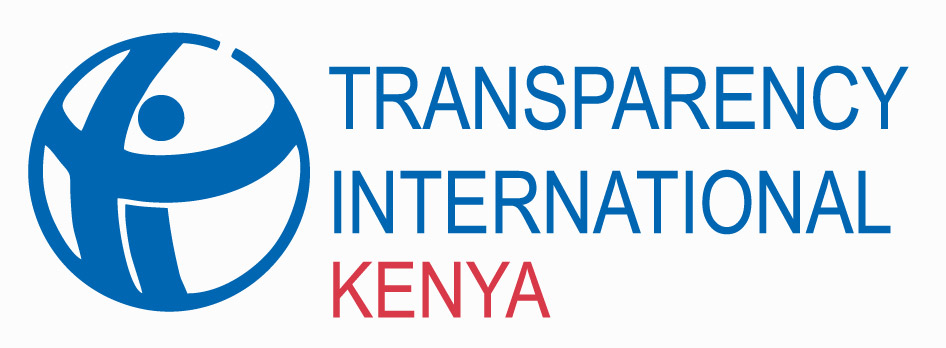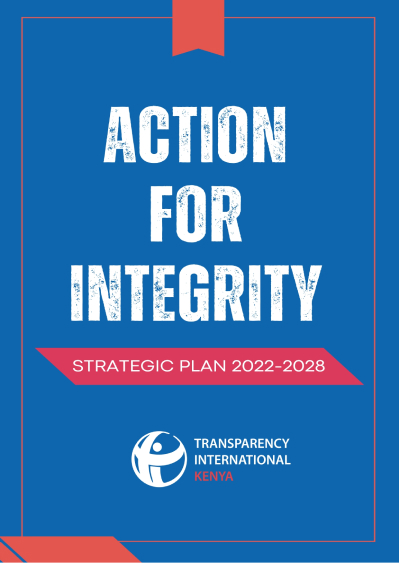Chair of Transparency International (TI) Board of Directors, Executive Director, TI Kenya, Mr. Samwel Kimeu
Distinguished Representative of the Australian High Commission, Ladies and gentlemen,
At the out-set allow me to extend my very warm salutations, to all of you participants.
Let me also express my profound gratitude to the Transparency International for inviting me to speak here at this launch of the Corruption Risks Assessment report on awarding of mineral licenses.
Around the world and particularly in developing countries, corruption is the most spoken about topical issue and problem facing nation states.
Corruption hinders social progress and development, contributes to endemic and widespread poverty, conflict and insecurity and above all inequality.
Bribery and other benefits of economic crimes sought in order to access public services immensely erode the trust between citizens and government as well as industry. Corruption diminishes confidence in public institutions and systems and depresses the appetite for investments.
This is why Kenya like all progressive nations has enacted various laws and regulations and adopted polices and measures to deal with corruption.
As a country, we have adopted many international best practices, codes and standards to address corruption and the conversation on corruption is very much in the public discourse.
As a Ministry and as part of the government’s commitment on the subject, we appreciate that the fight against corruption requires concerted efforts.
Thus, we welcome the role and positive contributions, collaboration and genuine partnerships with organizations and institutions such Transparency International as well as other non-state actors.
We as a Ministry received, read and reviewed this report with keen interest to assess its findings against the measures we have put in place to promote transparency and accountability in the Mining sector.
I must say at this point that we find this report to be quite comprehensive in terms of its scope, coverage and depth as well as objectivity.
Honourable Chair, Distinguished Participants,
Let me now make specific comments on some of the issues contained in the report.
As a ministry, we are fully seized with the fundamental need and requirement to create awareness of the policies, laws, regulations and other measures put in place by the government to govern and regulate the mining sector in Kenya. In fact, public consultation is a mandatory requirement of the Constitution of Kenya 2010.
In this regard, the Ministry with support of development partners undertook an extensive stakeholder consultations and sensitization workshops with a broad-spectrum of stakeholders across the country.
The participants in these forums included Mining Companies, Artisanal & Small Scale Miners, County CEC’s for Environment & Natural Resources & their Chief Officers as well as Chairmen of County Assembly Committees for Environment and Natural Resources. Also consulted were officers from key government agencies and constitutional commissions as well as relevant committees in both Houses of Parliament
The inherent legislative, regulatory, policy and system weaknesses of the past enabled interference, unscrupulous actions and corruption to take place.
However, the raft of measures and actions in the current Mining Law and Regulations backed by institutional and systemic reforms is expected to significantly reduce and gradually eliminate these practices.
For instance, applications are done on the online mining cadastre which operates on a rather efficient and objective principal of first come first served basis without recourse to individual officers of the ministry.
In addition, the Mineral Rights Board (MRB) takes away the powers and responsibilities of issuance of licences from a single individual.
Most of the key regulations have now been gazetted and have now come into force. While the process of publishing of the remaining ones has been commenced.
It is important to note that delays are caused by factors beyond the control of the Ministry as it involves other key players in the process including the Attorney General’s chambers as well as the calendars of both Houses of Parliament which have to meet the demands from all sectors. But we are on course.
The MRB is now fully constituted. The members of the board have been inducted in their roles, the Mining Act 2016 and the Regulations. They have developed their operation plan and have embarked on their work.
Completion of the most critical features, functions, work flow processes of the Cadastre have been done and reconfigured to align with the Mining Act 2016 and Mining Regulations. All these features have gone live and are already in use.
The Ministry is continuously addressing capacity issues in order to better serve industry. Trainings, inductions and refresher courses for our technical staff is on-going coupled with recruitment of additional technical officers in the various cadres.
We have recruited over 97 technical officers in various professions including Geologists, Inspectors of Mines, Chemists, Cartographers and in Mineral Promotion and Value addition.
As a government, we are cognizant of the fact that for any sector including mining to make maximum impact on Kenya’s development, we need growth and an enabling as well as a stable environment characterized by policy clarity, enabling legislation and regulations.
In this regard, we have embarked on discussions with the National Treasury and other government agencies as well as with industry and other stakeholders to try and develop a comprehensive and integrated mining fiscal regime.
Distinguished Participants
The mining industry in Kenya is still nascent but as government, we are making every possible effort to make it the next growth sector of our economy.
I am convinced that we are having the right dialogue in addressing the challenges we have and forums such as this one provide us with such momentous occasions for engagement and forging genuine and productive partnerships.
In conclusion let me assure you that the government will continue to consult widely and engage with you from time to time on issues affecting the industry.
I thank you for your kind attention.

